Most Christians would be familiar with this great gospel verse:
John 3:16 "For God so loved the world, that he gave his only begotten Son, that whosoever believeth in him should not perish, but have everlasting life."
What is the meaning of "the world" in this verse? Generally speaking, "the world" has the meaning of the earth, together with all its countries and inhabitants. But what was Jesus referring to when he said "the world" in John 3:16? Is this figurative or literal term? Once, a person asked me why it was “for God so "loved” (past tense) the world…” I told that person that it was the bible pointing us back to Genesis 3, to what happened in the beginning with mankind. Adam and Eve was “the world” at that time, and that was also God who foresaw the generations upon generations of people that shall come from them. Science have shown that before a baby girl was born, all her eggs were already fully formed. That means her daughter and her grandchildren and her granddaughters’ children were already in Eve. In fact, in the field of human genetics, “Mitochondrial Eve” refers to the earliest matrilineal ancestor from whom all living humans are descended: passed down from mother to offspring, and all mitochondrial DNA (mtDNA) in every living person is directly descended from hers. That would be “the world” throughout the history of mankind. Nevertheless, to gain a deeper understanding of the meaning of “the world,” let us begin by taking a deeper dive into the context of John 3:16.
John 3:14-17 "¶ And as Moses lifted up the serpent in the wilderness, even so must the Son of man be lifted up: 15 That whosoever believeth in him should not perish, but have eternal life. 16 ¶ For God so loved the world, that he gave his only begotten Son, that whosoever believeth in him should not perish, but have everlasting life. 17 For God sent not his Son into the world to condemn the world; but that the world through him might be saved."
Here, Jesus was quoting from the Old Testament, using the serpent of brass that Moses had made in the wilderness as a foreshadow of himself who would be crucified for the sins of "the world" that God the Father so loved:
Numbers 21:8-9 "And the LORD said unto Moses, Make thee a fiery serpent, and set it upon a pole: and it shall come to pass, that every one that is bitten, when he looketh upon it, shall live. 9 And Moses made a serpent of brass, and put it upon a pole, and it came to pass, that if a serpent had bitten any man, when he beheld the serpent of brass, he lived."
It was there in the wilderness that God instructed Moses to make a serpent of brass and set it upon a pole, so that whosoever was bitten by the fiery serpents, when they shall behold the serpent of brass, shall live. By the way, the fiery serpents were sent by God as judgment to the children of Israel. The serpent of brass that Moses made was a figure of the Son of man, Jesus Christ, who was crucified for the sins of "the world" in John 3:16. The psalmist calls Jesus a "worm" in this verse:
Psalms 22:6 "But I am a worm, and no man; a reproach of men, and despised of the people."
The context of this verse is prophetic of the crucifixion of the Lord Jesus Christ for the sins of "the world" in John 3:16. Therefore, the serpent of brass on the pole is the worm (Jesus) in Psalms 22:6. Also to be noted is that "worm" in old English is "wrym" and has the meaning:
(poetic) DRAGON, particularly one without legs or wings.
(poetic) SERPENT or SNAKE, particularly a large one.
Job 25:6 "How much less man, that is a worm? and the son of man, which is a worm?"
In that sense, the Son of God was prophesied to come as the Son of man who would be offered up for the sins of "the world" in John 3:16 that God so loved, so that whosoever believeth in him should not perish but have everlasting life. Connecting this back to Numbers 21:8-9, the people who were bitten by the fiery serpents and came to Moses for help would be a figure of "the world" in John 3:16 who came to Jesus for salvation. The previous verse tells us:
Numbers 21:7 "¶ Therefore the people came to Moses, and said, We have sinned, for we have spoken against the LORD, and against thee; pray unto the LORD, that he take away the serpents from us. And Moses prayed for the people."
The words "we have sinned, for we have spoken against the LORD, and against thee; pray unto the LORD, that he take away the serpents from us" tell us that the people were repentant, and they knew the sins they have committed against the LORD and against Moses. That was when Moses prayed for the people, and God forgave their sins. Those people would be a figure of "the world" in John 3:16 whom Jesus prayed for, and God the Father forgave their sins. Of course, not everybody was repentant. Not everybody who was bitten by the fiery serpents believe in Moses. The book of Job tells us:
Job 33:21 "His flesh is consumed away, that it cannot be seen; and his bones that were not seen stick out."
The venom of poisonous snakes such as the African spitting cobra can literally cause severe tissue destruction, because they contain toxins that directly destroy cells and cause tissue to die in a process called necrosis. These venoms specifically target and kill cells, leading to damage to the skin, muscles, and even bone. The flesh is literally consumed away.
Job 33:22 “Yea, his soul draweth near unto the grave, and his life to the destroyers.”
Without God’s provision of the serpent of brass, the end of the sinner’s soul would be death. Likewise, if God the Father had not given the world his only begotten Son, the end of every soul in this world would be death and hell. The context of Job 33:21-22 shows us how God delivers a repentant sinner:
Job 33:27-28 "He looketh upon men, and if any say, I have sinned, and perverted that which was right, and it profited me not; 28 He will deliver his soul from going into the pit, and his life shall see the light."
The words "I have sinned, and perverted that which was right" tells us that the sinner knows where he has sinned against the LORD and is repentant. In today's context, that would be the bible showing him where he had come short of the glory of God (Romans 3:23). Compare this to the people who came to Moses, and said "we have sinned" (Numbers 21:7). They knew where they had perverted that which was right, and it profited them not. The bible tells us in 1 Samuel 16:7 "the LORD looketh on the heart." It is repentance from the heart that activates God the Father, and cause him to perform a work in the sinner to deliver his soul from going down into hell, so that his life shall see "the light." The bible tells us:
John 8:12 “Then spake Jesus again unto them, saying, I am the light of the world: he that followeth me shall not walk in darkness, but shall have the light of life.”
Jesus is the "light of the world" that Job 33:28 was referring to. When God the Father shall deliver the soul of a sinner, he must also open his eyes to Jesus, so that he shall see "the light of life." That's why it is a serpent of brass in Numbers 21:8-9, because brass is a symbol of fire (Numbers 21:8 "Make thee a fiery serpent"). Except for the light coming from the fiery serpent (Jesus), a sinner cannot walk in the light.
Proverbs 6:23-24 "For the commandment is a lamp; and the law is light; and reproofs of instruction are the way of life: 24 To keep thee from the evil woman, from the flattery of the tongue of a strange woman."
Jesus is the Word (John 1:1), and the written word of God is light: this is the "light" that allows a sinner to walk in the way of life. There is also another way, which according to Matthew 7:13 "broad is the way, that leadeth to destruction." That is the broad way illuminated by darkness, by the flattery of the tongue of the strange woman. In the book of Proverbs, the strange woman is the opposite of the virtuous woman, who is a figure of the church of the living God. The church is the body of Christ, and the body of Christ is God the Father's provision on earth for a sinner looking for salvation. The book of Job explains in these verses:
Job 33:23-26 "If there be a messenger with him, an interpreter, one among a thousand, to shew unto man his uprightness: 24 Then he is gracious unto him, and saith, Deliver him from going down to the pit: I have found a ransom. 25 His flesh shall be fresher than a child’s: he shall return to the days of his youth: 26 He shall pray unto God, and he will be favourable unto him: and he shall see his face with joy: for he will render unto man his righteousness."
God is upright to forgive sins, and this is the message that a sinner needs to hear. Here, the book of Job tells us about soul-winning: "if there be a messenger with him, an interpreter, one among a thousand, to shew unto man his uprightness." A soul-winner is a messenger of God, one among a thousand, whose job is to interpret the bible for a sinner looking for salvation, to shew unto him the uprightness of God to forgive sins: basically, to expound the gospel unto him so that his eyes may be opened to see Jesus ("true Light" John 1:9) in the written word of God ("light"). In fact, we have an example of this in Luke 24:
Luke 24:27-31 "And beginning at Moses and all the prophets, he expounded unto them in all the scriptures the things concerning himself… 31 And their eyes were opened, and they knew him; and he vanished out of their sight."
The context of this passage of scripture is about two men, one of them whose name was Cleopas, who went on their way to Emmaus when they encountered the risen Christ. Notice that Jesus expounded unto them in all the scriptures, beginning at the Old Testament, in the things concerning himself: "how that Christ died for our sins according to the scriptures; And that he was buried, and that he rose again the third day according to the scriptures:" (1 Corinthians 15:3-4) Jesus is our "ransom" in Job 33:24, and that is the message that a sinner needs to hear. That is what soul-winning should be about: not going from door to door, trying to get people pray the sinner's prayer. The role of a soul-winner should be to expound from the Old Testament to the New Testament, the things concerning the Lord Jesus Christ, so that the sinner’s eyes may be opened to see him in the written word of God.
John 3:3 "Jesus answered and said unto him, Verily, verily, I say unto thee, Except a man be born again, he cannot see the kingdom of God."
Except a man could see Jesus in the written word of God, his eyes were never opened: he was never born again to begin with. Numbers 21:9 used the words "… when he beheld the serpent of brass, he lived." The eyes opened means that the sinner is no longer blind to the things of the Spirit of God.
Matthew 11:5 “The blind receive their sight, and the lame walk, the lepers are cleansed, and the deaf hear, the dead are raised up, and the poor have the gospel preached to them.”
In the first coming of Jesus Christ as the Son of man, he opened the eyes of the blind, healed the lame, cleansed the lepers, opened the ears of the deaf, raised the dead and preached the gospel to the poor as a sign of what the Spirit of the Lord will do for the soul of a sinner. A sinner is born again the moment he receive his sight so that he could now behold the kingdom of God: the scales have fallen off from his eyes. (Acts 9:18) It is not physical eyes that the bible was referring to, of course. Solomon shows us in this verse what the pair of eyes is about:
Ecclesiastes 2:14 “The wise man's eyes are in his head; but the fool walketh in darkness: and I myself perceived also that one event happeneth to them all.”
A wise man, as well as a fool, both could see with their physical eyes. Yet, the wise man has a pair of eyes in his head which could help him see things that the fool could not. Paul tells us that the pair of eyes in the head is the mind in 2 Corinthians 4:4 "In whom the god of this world hath blinded the minds of them which believe not…" The word "blinded" is a reference to the eyes. The fool walketh in darkness because the eyes of his mind have been blinded: that's why he could not see the kingdom of God, which is why Jesus said in John 3:7 “Ye must be born again.” Job 33:25 describes "born again" experience as such: "his flesh shall be fresher than a child's: he shall return to the days of his youth." Compare this to:
John 3:4 "Nicodemus saith unto him, How can a man be born when he is old? can he enter the second time into his mother's womb, and be born?"
Nicodemus asked the question: "can he enter the second time into his mother's womb, and be born?" (John 3:4) That is exactly what "born again" means: the soul of a believer must enter into the womb of his spiritual mother, so that he could experience the new birth. Jesus tells us in Luke 17:21 “Neither shall they say, Lo here! or, lo there! for, behold, the kingdom of God is within you.” The soul of a believer must enter into the “secret place of the most High” (Psalms 91:1) in order to be born again into the kingdom of God. The psalmist tells us:
Psalms 139:13-16 “For thou hast possessed my reins: thou hast covered me in my mother's womb. 14 I will praise thee; for I am fearfully and wonderfully made: marvellous are thy works; and that my soul knoweth right well. 15 My substance was not hid from thee, when I was made in secret, and curiously wrought in the lowest parts of the earth. 16 Thine eyes did see my substance, yet being unperfect; and in thy book all my members were written, which in continuance were fashioned, when as yet there was none of them.”
Physical-wise, it is in the womb of our mother that we were made: likewise for the soul of a born again believer, how he was made in secret, and curiously wrought in the lowest parts of his spiritual mother. Of course, he must first be born of the flesh, and then be born again of the Spirit, just like what Jesus tells us in these two verses:
John 3:5-6 "Jesus answered, Verily, verily, I say unto thee, Except a man be born of water and of the Spirit, he cannot enter into the kingdom of God. 6 That which is born of the flesh is flesh; and that which is born of the Spirit is spirit."
God the Father is now his spiritual father, and New Jerusalem his spiritual mother (Galatians 4:26). Moreover, after a believer was "born again," Paul tells us in 2 Corinthians 5:17 that he is now a new creature: old things hath passed away; behold, all things are become new. The soul of the sinner undergoes a complete regeneration so that his flesh shall be fresher than a child's. In that sense, he is healed from the poison of the fiery serpent that had bitten him. As a born again son of God, he shall pray unto God the Father, and he will be favourable unto him, because Jesus Christ is now his righteousness. But of course, not everybody in the world is a child of God. Jesus tells us in the Parable of the Tares and the Wheat:
Matthew 13:37-39 "He answered and said unto them, He that soweth the good seed is the Son of man; 38 The field is the world; the good seed are the children of the kingdom; but the tares are the children of the wicked one; 39 The enemy that sowed them is the devil; the harvest is the end of the world; and the reapers are the angels."
Here, Jesus reveals that "the field is the world." Earlier, we've learned that "the world" has the meaning of the earth, together with all its countries and inhabitants. In the Parable of the Tares and the Wheat, Jesus compares the world to a piece of land where seeds are sown. Recall from Genesis 2:7 that the LORD God formed man out of the dust of the ground?
Genesis 2:7 “And the LORD God formed man of the dust of the ground, and breathed into his nostrils the breath of life; and man became a living soul.”
The dust of the ground is the material for our physical body, and the breath of life is the source of our life: the spirit that quickeneth the flesh according to John 6:63. It was the breath of life (spirit) that came from God’s mouth which imparted life into Adam, so that he became a living soul. Moses further tells us in Leviticus 17:11 “For the life of the flesh is in the blood… it is the blood that maketh atonement for the soul.” The soul is the life of the flesh. That is why Jesus must exchange his life for ours: his blood for our blood, so that we can have eternal life.
Luke 8:11 “Now the parable is this: The seed is the word of God.”
The word of God is the breath of life that comes out of God’s mouth, and it is used in this verse to paint a picture of what happened in Genesis 2:7, when God breathed into Adam’s nostrils and he became a living soul. It is the same with us today: how we receive the good seed of the word of God (spirit), so that our soul can live. However, there are good seeds being sown, as well as and tares. Jesus further tells us that the Son of man (Jesus) was the one who sowed the good seeds, and the Devil was the one who sowed the tares. It is also in the Parable of the Tares and the Wheat that the bible calls the tares the children of the Devil, which then makes the good seeds the children of God. The book of Ruth tells us:
Ruth 2:3-22 "And she went, and came, and gleaned in the field after the reapers: and her hap was to light on a part of the field belonging unto Boaz, who was of the kindred of Elimelech… 8 Then said Boaz unto Ruth, Hearest thou not, my daughter? Go not to glean in another field, neither go from hence, but abide here fast by my maidens:… 22 And Naomi said unto Ruth her daughter in law, It is good, my daughter, that thou go out with his maidens, that they meet thee not in any other field."
There is "the field belonging unto Boaz," and there is also "another field" or "any other field:" those are the fields which don't belong unto Boaz. Link this to what Jesus tells us Matthew 13:38 "the field is the world." That means that the world is one large field divided into different plots of land. There is a plot of land which belongs unto Jesus (Boaz being a figure of Jesus) and other plots of land which don't belong unto him. We have a picture of that in the Parable of the Sower where Jesus grouped the entire world into four different types of heart: (1) the way-side heart; (2) the stony ground heart; (3) the thorny ground heart; and (4) the good ground heart.
Luke 8:15 "But that on the good ground are they, which in an honest and good heart, having heard the word, keep it, and bring forth fruit with patience."
Of all the types of heart, only the good ground heart kept the good seed and brought forth fruit with patience. That is to say, only people with an "honest and good heart" (Luke 8:15) can receive the gospel of Jesus Christ and cause the seed of the word of God to bring forth life. An honest and good heart is the heart of every born again believer: this is the peculiar group of people which belong unto Jesus. The rest of the world: the way-side heart, the stony ground heart, and the thorny ground heart, all of them belong unto the Devil. However, God did not just sow the good seed on the good ground. Jesus tells us in this verse:
Matthew 5:45 "That ye may be the children of your Father which is in heaven: for he maketh his sun to rise on the evil and on the good, and sendeth rain on the just and on the unjust."
God will make his sun to rise on the evil and on the good, and sendeth rain on the just and the unjust, just like what we read in the Parable of the Sower, how the Son of man will sow good seed on all types of ground, not just the good ground. Yet, it is how the different types of heart react the seed of the word of God that will determine whether the seed will take root and bear fruit. We know in nature, how different types of seed will thrive in different environment. Not all seeds can thrive on a good ground. Take the cactus for example: they aren't just drought tolerant, but they need some drought in order to survive! Their roots rot easily, and too much water could in fact kill them. We could compare the cactus to the thorny ground heart in the Parable of the Sower:
Luke 8:14 "And that which fell among thorns are they, which, when they have heard, go forth, and are choked with cares and riches and pleasures of this life, and bring no fruit to perfection."
Most thorny bushes thrive in a dry and sandy ground, where the good seed of a fruit-bearing tree cannot flourish. Likewise, the good seed of the word of God cannot take root and bear fruit in a thorny ground heart: the type of heart choked full with cares and riches and pleasures of this life. People with thorny ground hearts don't desire for "the truth" (Jesus), which is why the gospel of Jesus Christ could not take root and bear fruit in their lives. Paul tells us:
2 Corinthians 11:3-4 "But I fear, lest by any means, as the serpent beguiled Eve through his subtilty, so your minds should be corrupted from the simplicity that is in Christ. 4 For if he that cometh preacheth another Jesus, whom we have not preached, or if ye receive another spirit, which ye have not received, or another gospel, which ye have not accepted, ye might well bear with him."
People with thorny ground hearts much prefer a lie over the truth, and because of this tendency, they are easily beguiled into another gospel which opens them to another Jesus and another spirit. Of all the types of heart, only the good ground heart is capable of keeping the good seed of the word of God and bring forth fruit with patience. However, the Parable of the Tares and the Wheat tells us that it is not just the good seed being sown in the good ground. Tares too, were being sown. Tares are the "children of the wicked one" according to Matthew 13:38.
Tares (poison darnel) usually grows in the same production zones as wheat. The similarity between these two plants is so great that in some regions, tares are referred to as “false wheat.” It bears such close resemblance to wheat, until the ears begin to appear at harvest time. The spikes of tares are more slender than those of wheat, and they are oriented edgeways to the rachis and have only a single glume, while those of wheat are oriented with the flat side to the rachis and have two glumes. Moreover, wheat will appear golden brown when ripe, whereas tares will be black.
Matthew 13:30 "Let both grow together until the harvest: and in the time of harvest I will say to the reapers, Gather ye together first the tares, and bind them in bundles to burn them: but gather the wheat into my barn."
It is only until the harvest that their differences will be obvious: tares will be tares and wheat will be wheat. According to Jesus, the tares will be gathered first, and afterwards shall the wheat make it into the barn. Likewise, this has also happened with the children of Israel who believed not in the promise of God, and never made it into the promised land, like what we read in this passage of scripture:
Deuteronomy 9:13-14 "Furthermore the LORD spake unto me, saying, I have seen this people, and, behold, it is a stiffnecked people: 14 Let me alone, that I may destroy them, and blot out their name from under heaven: and I will make of thee a nation mightier and greater than they."
Notice the words “destroy them, blot out their name from under heaven?” That means that God will literally blot out the names of people from the book of life, and he was referring to the children of Israel that Moses referred to as those “stiffnecked people.” This connects to:
Jude 1:4-5 "For there are certain men crept in unawares, who were before of old ordained to this condemnation, ungodly men, turning the grace of our God into lasciviousness, and denying the only Lord God, and our Lord Jesus Christ. 5 I will therefore put you in remembrance, though ye once knew this, how that the Lord, having saved the people out of the land of Egypt, afterward destroyed them that believed not."
Likewise, there are many false converts that crept into the church unawares, ungodly men, turning the grace of our God into lasciviousness, and denying the only Lord God, and our Lord Jesus Christ. Those are like the “stiffnecked people” whom God had saved out of the land of Egypt, but afterward destroyed them. Among the children of Israel, there were those who made it to the promised land, and those who did not. God was the one who made sure that those who believed not did not make it to the promised land. Compare these verses:
2 Thessalonians 2:3 "Let no man deceive you by any means: for that day shall not come, except there come a falling away first, and that man of sin be revealed, the son of perdition;"
Matthew 13:30 "Let both grow together until the harvest: and in the time of harvest I will say to the reapers, Gather ye together first the tares, and bind them in bundles to burn them: but gather the wheat into my barn."
According to Paul, the “falling away” (Greek: "apostasia") will take place before the coming of our Lord Jesus Christ, and by our gathering together unto him. A great apostasy must take place before the resurrection of the dead in Christ and the rapture of the living, and that would be via the mark of the beast which will separate the tares from the wheat. The day of harvest will come, and the tares will fall away first, and afterwards, the wheat will make it into the barn. God will make sure that the names of the tares would be blotted out from under heaven, so that those ungodly men who were never born again to begin with will never make it into the kingdom of God.
Numbers 14:32 "But as for you, your carcases, they shall fall in this wilderness."
The word “fall” in this verse is a reference to the “falling away” (Greek: "apostasia") in 2 Thessalonians 2:3. God made sure that those physical descendants of Abraham who believed not never made it into the promised land. The same will also happen right before the coming of the Lord Jesus Christ, before the resurrection of the dead in Christ and the rapture of the living. The ones who truly keep the words of the Lord will never take the mark of the beast, and they will be accounted worthy when they shall stand before the Lord in judgment.
Luke 20:34-36 "And Jesus answering said unto them, The children of this world marry, and are given in marriage: 35 But they which shall be accounted worthy to obtain that world, and the resurrection from the dead, neither marry, nor are given in marriage: 36 Neither can they die any more: for they are equal unto the angels; and are the children of God, being the children of the resurrection."
There are Christians who are depending on their “sinner's prayer” and church attendance as evidence of salvation, while not having the actual substance of faith in them. They would be like the children of Israel who “believed not” according to Jude 1:5. God made sure that their carcases fell in the wilderness, and they never made it into the promised land. Likewise, God will make sure that those Christians shall receive the mark of the beast, so that they shall fall away in the time of temptation. Only an "honest and good heart" (Luke 8:15) who keep the word of God shall be accounted worthy to stand before the Lord in judgment. One is “accounted worthy” when there is an account of his deeds before the Lord, just like what Solomon tells us in this verse:
Ecclesiastes 12:14 "For God shall bring every work into judgment, with every secret thing, whether it be good, or whether it be evil."
God shall bring every work into judgment: that is how we are accounted worthy. The ones who truly live by faith in the words of the LORD will be justified by their works, and they shall be accounted worthy to stand before the Son of man in the resurrection of the dead, so that they can die no more, being equal unto angels, the children of God, being the children of the resurrection.
1 John 5:4-5 "For whatsoever is born of God overcometh the world: and this is the victory that overcometh the world, even our faith. 5 Who is he that overcometh the world, but he that believeth that Jesus is the Son of God?"
Revelation 12:10-11 "And I heard a loud voice saying in heaven, Now is come salvation, and strength, and the kingdom of our God, and the power of his Christ: for the accuser of our brethren is cast down, which accused them before our God day and night. 11 And they overcame him by the blood of the Lamb, and by the word of their testimony; and they loved not their lives unto the death."
These are genuinely born again believers who have overcome the world by their faith in the written word of God. They are the ones who shall be accounted worthy to escape all these things that shall come to pass, even the temptation to take the mark of the beast, to be able to stand before the Son of man.
Luke 21:36 "Watch ye therefore, and pray always, that ye may be accounted worthy to escape all these things that shall come to pass, and to stand before the Son of man."
When the mark of the beast shall be implemented, there will be many born again believers who will be beheaded for their witness of Jesus, and for the word of God. Yet, they shall overcome the world because of their faith in the written word of God by refusing to worship the beast, neither his image, nor receive a mark in their foreheads of in their hands. Their deeds will testify for their faith in the written word of God, and they shall be accounted worthy to stand before the Son of man in judgment. They shall obtain unto the resurrection of the dead and shall reign with Christ for a thousand years.




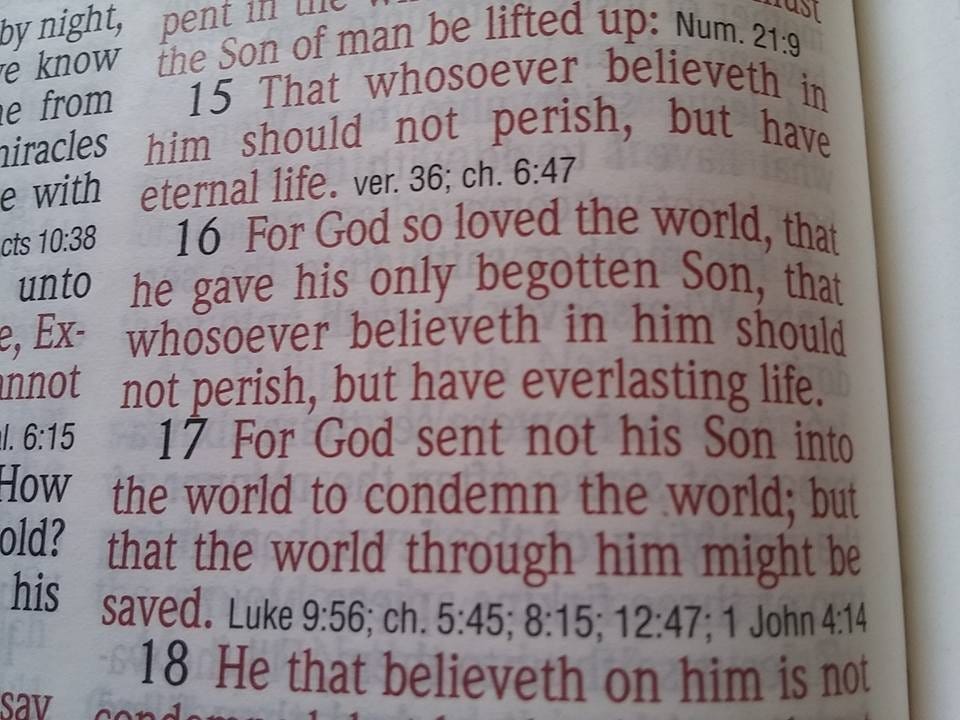


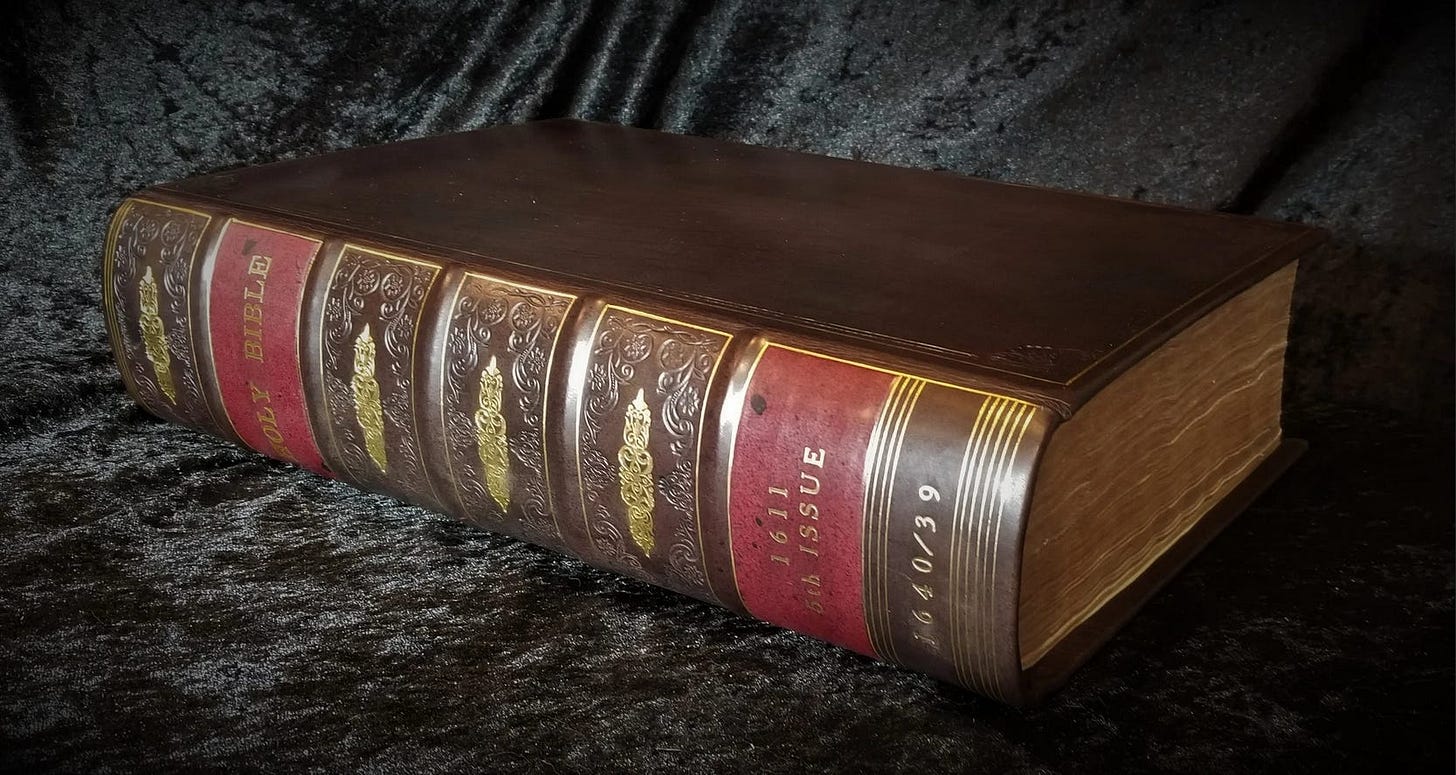

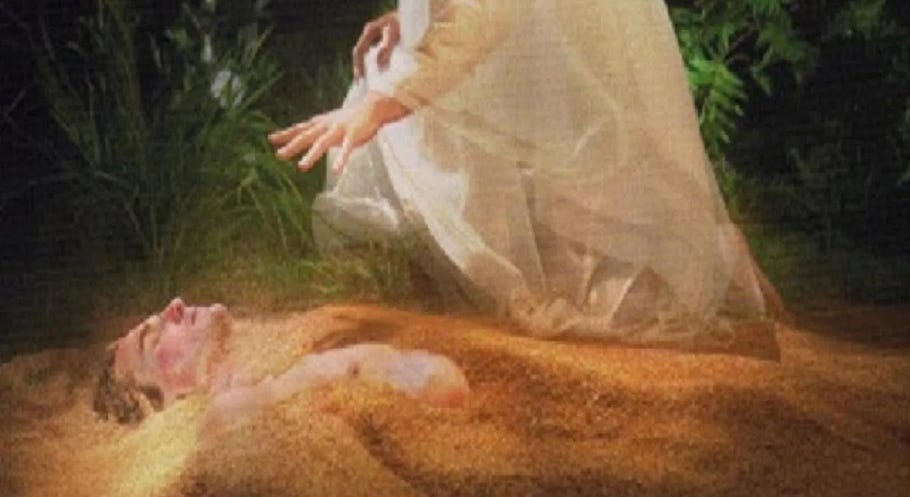

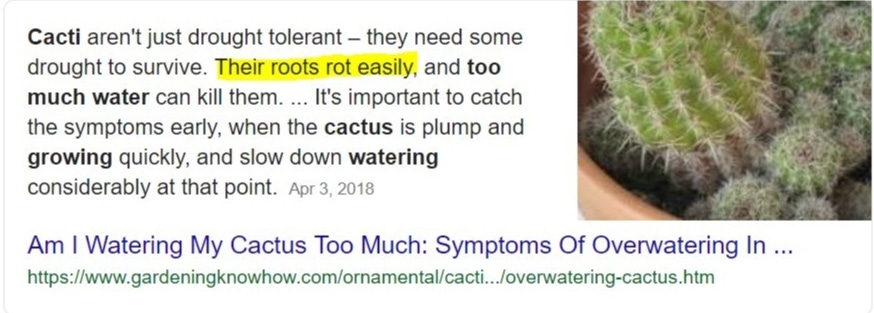
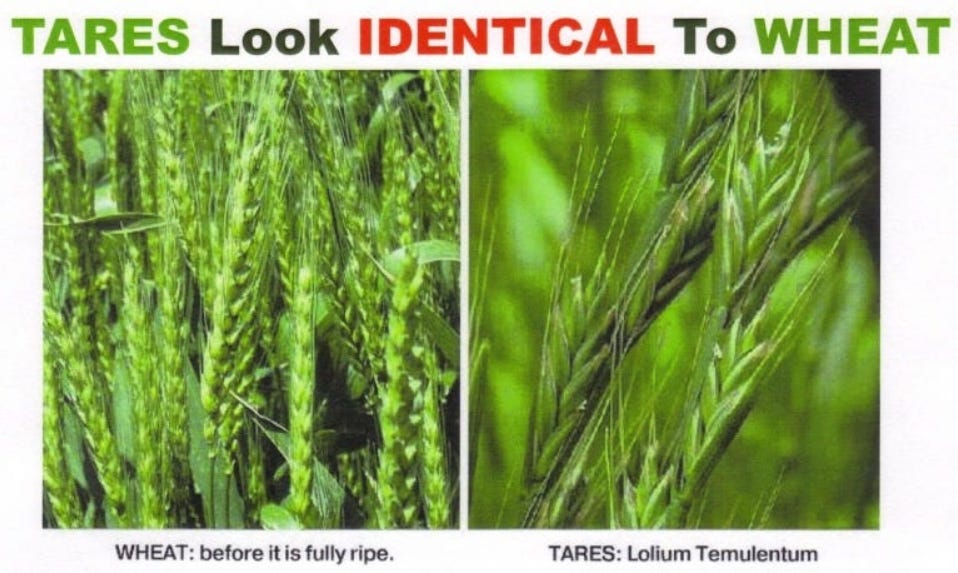
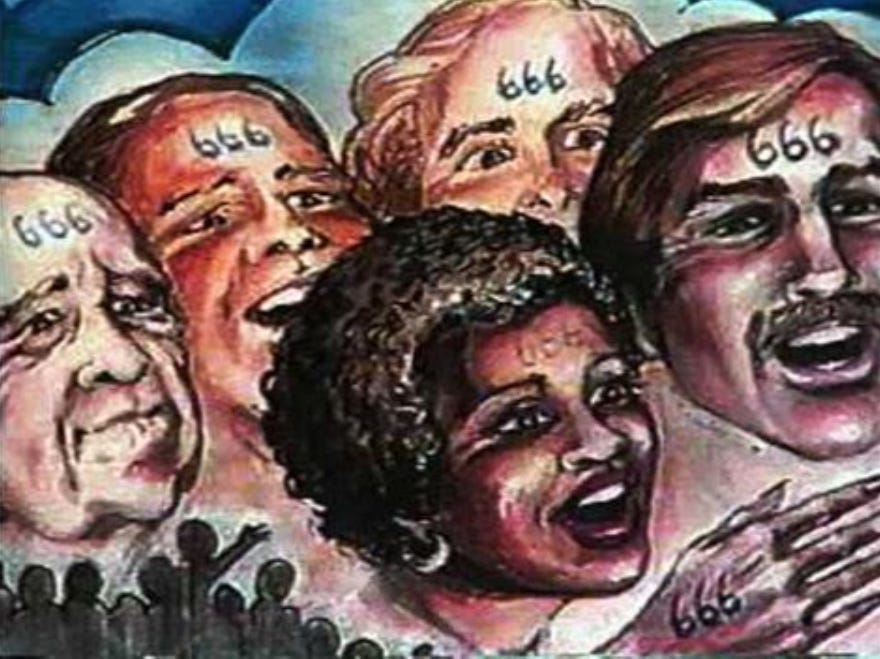
Whosoever believeth
Timely. Happy Easter